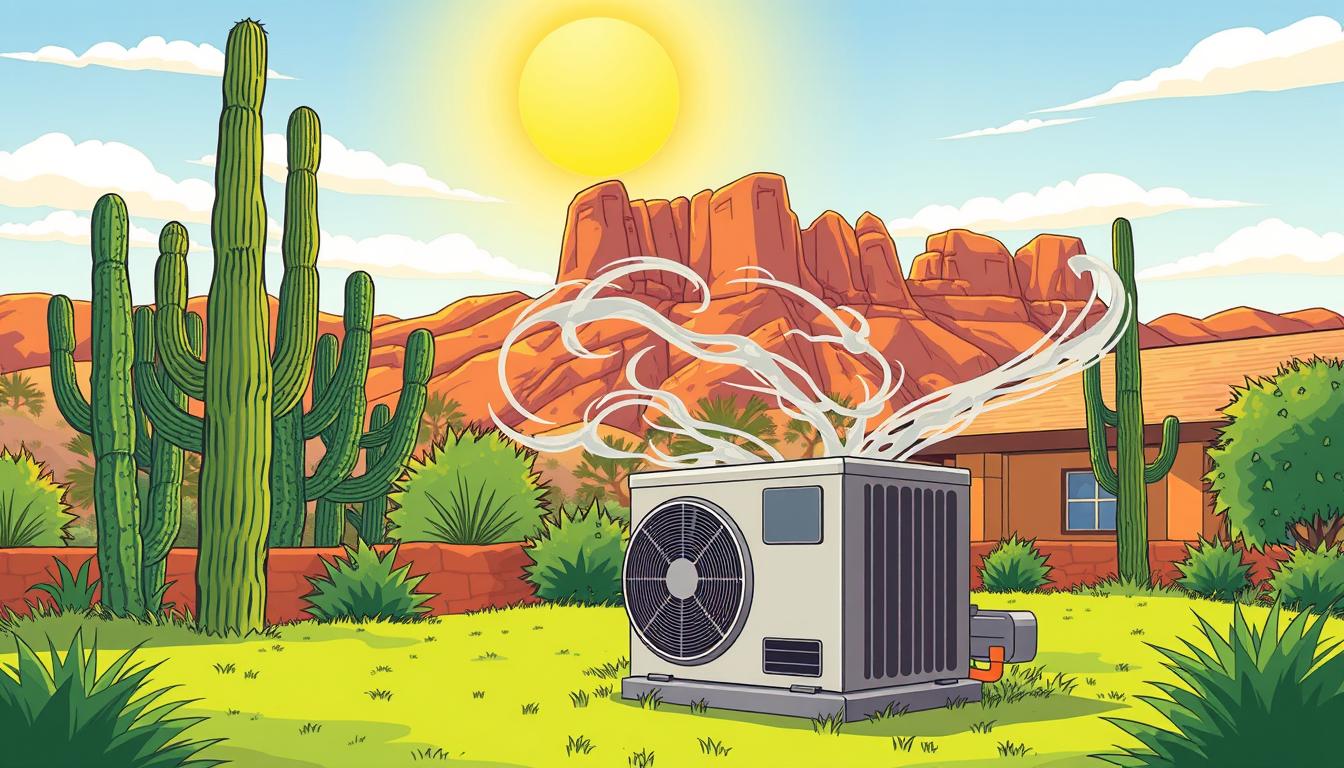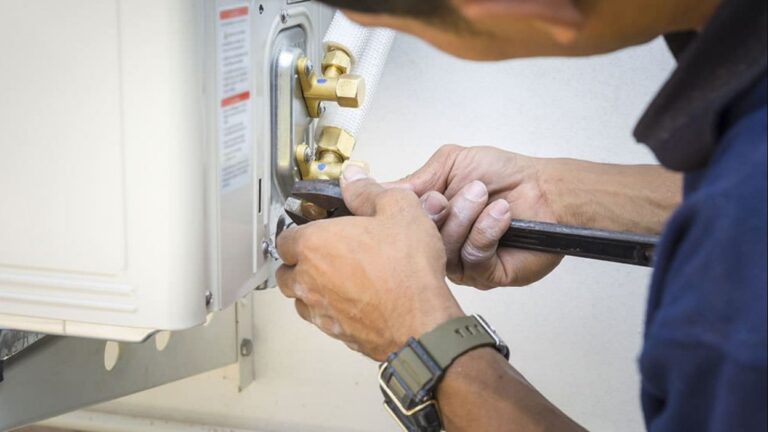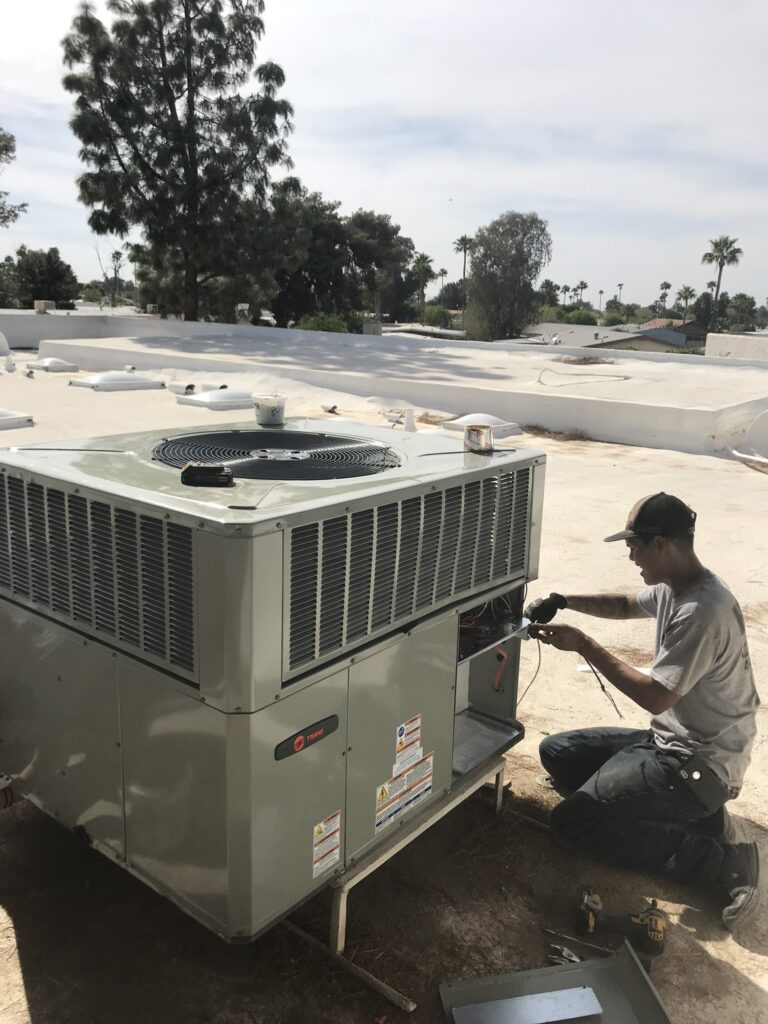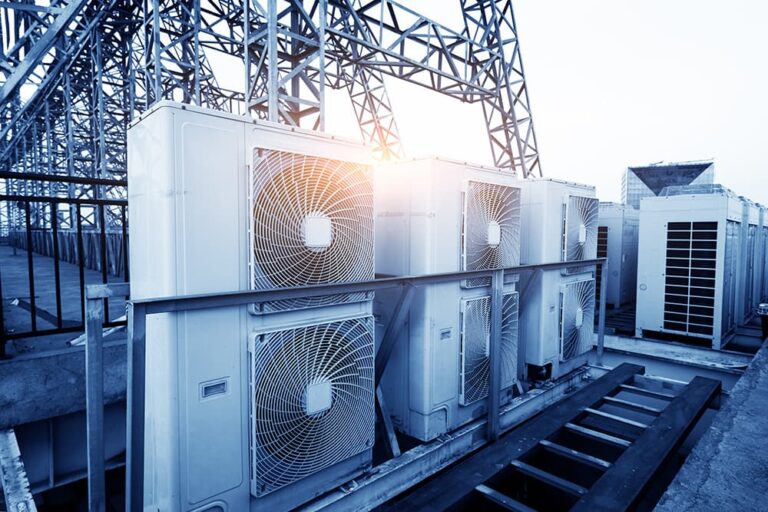How Arizona Humidity Levels Impact Your HVAC Performance
Arizona is famous for its dry weather, but humidity levels can change a lot. This is true, mainly during the monsoon season. These changes can really affect how well your HVAC system works.
Even though Arizona is usually dry, sudden increases in moisture can stress your HVAC. It’s important to know how these humidity changes impact your HVAC. This knowledge helps keep your system running well and lasting longer.
When humidity goes up, your HVAC system has to work harder. This means it uses more energy and might wear out faster.
Understanding Humidity and Its Importance in HVAC Systems
Humidity’s impact on HVAC systems is often missed but is key for their best performance. Knowing about humidity helps keep HVAC systems running well. It affects both comfort and system efficiency.
What is Humidity?
Humidity is the moisture in the air. In HVAC systems, it’s vital for comfort and efficiency. It’s measured as relative humidity (RH), which shows the air’s moisture compared to its capacity at a certain temperature. High humidity makes air feel warmer, while low humidity makes it feel cooler.
Why Humidity Matters for HVAC Efficiency
Humidity impacts HVAC efficiency in several ways. High humidity means the system must work harder to cool the air. Low humidity can cause dry air discomfort and harm system parts. Keeping humidity levels right is key for efficient HVAC operation.
The table below shows how different humidity levels affect HVAC performance:
| Humidity Level | Impact on HVAC | Comfort Level |
|---|---|---|
| High Humidity (>60% RH) | Increased cooling load, possible mold growth | Feels warmer, may be uncomfortable |
| Optimal Humidity (40-60% RH) | Efficient operation, less energy use | Best comfort, feels just right |
| Low Humidity ( | Dry air discomfort, may harm system parts | Feels cooler, may feel dry |
Managing humidity is critical for HVAC efficiency. Proper humidity control ensures the system works well and keeps the environment comfortable.
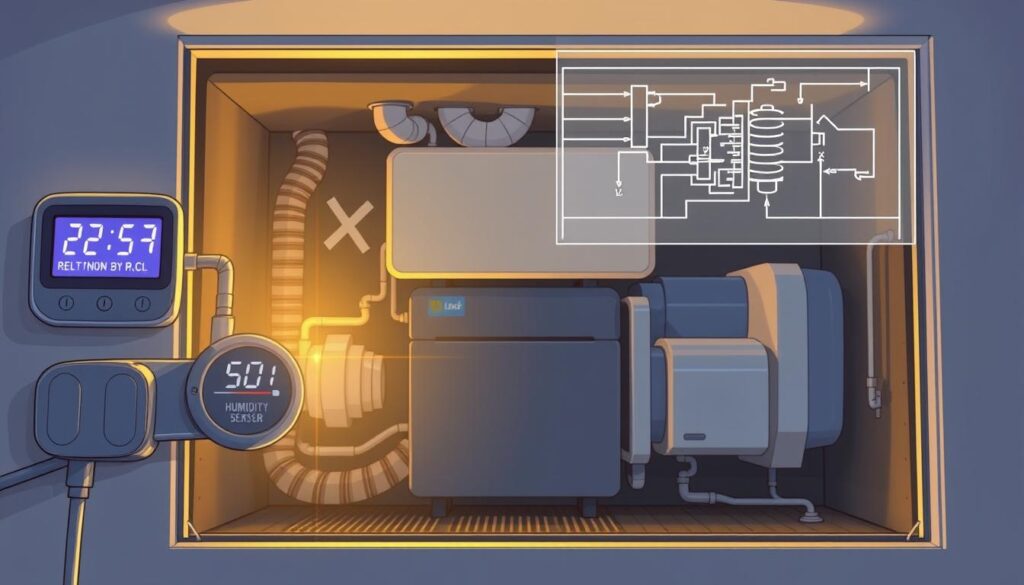
The Effects of High Humidity on HVAC Performance
In humid conditions, HVAC systems face several challenges. High humidity can lead to issues that affect the system’s efficiency. It also impacts the comfort and health of the indoor environment.

Increased Cooling Load
High humidity increases the cooling load on HVAC systems. Moist air makes the system work harder to cool the space. This is because the moisture makes the air feel warmer than it actually is.
This requires more energy, leading to higher energy bills. It also increases wear on the system’s components. Experts say the cooling load can increase by up to 30% in humid conditions.
Potential for Mold Growth
High humidity creates an ideal environment for mold growth in HVAC systems. Mold thrives in moist conditions. When it grows in the ductwork or on components, it can cause serious indoor air quality issues.
Mold can harm the health and comfort of occupants. It can also damage the system over time. Regular maintenance is key to prevent mold growth and ensure the system operates efficiently.
Reduced Air Quality
High humidity also reduces air quality. Moisture in the air can cause dust mites, mold, and mildew to flourish. This can worsen respiratory issues and allergic reactions.
An HVAC system in high humidity must handle moisture effectively. This is to maintain good indoor air quality.
“Maintaining optimal humidity levels is key for HVAC system performance and occupant health.”
By understanding these effects, homeowners and facility managers can take steps to mitigate challenges. This is to improve HVAC performance in high humidity.
How Low Humidity Influences HVAC Functionality
It’s important to know how low humidity affects your HVAC system. Low humidity can cause dry air discomforts and damage to your HVAC. By controlling humidity, you can keep your system running well.
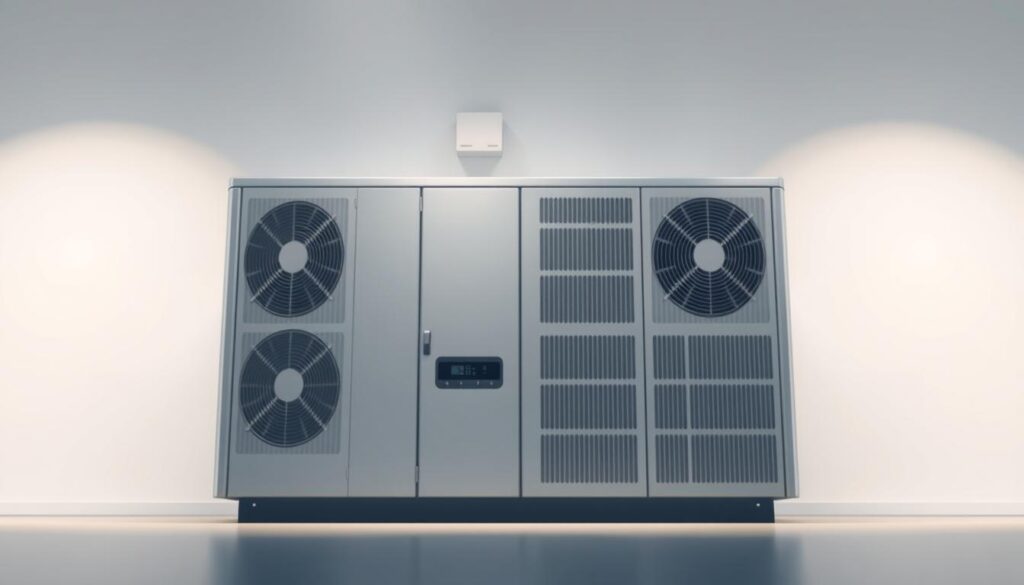
Dry Air and Its Discomforts
Dry air from low humidity can make your skin dry, eyes irritated, and breathing hard. Maintaining an optimal humidity level is key to avoiding these issues. It also keeps your furniture and plants safe from damage.
Impact on HVAC Components
Low humidity can harm your HVAC system’s parts. For example, it can dry out belts, causing them to crack and break. Controlling humidity in HVAC units also stops static electricity damage to electronics.
Knowing how low humidity affects your HVAC helps you take care of it. Regular checks and maintenance can prevent problems. This keeps your system working well for longer.
Arizona’s Unique Humidity Challenges
Arizona’s dry desert climate hides complex humidity challenges for HVAC systems. Humidity levels can change a lot because of different factors.
Seasonal Humidity Variations
Arizona sees big changes in humidity with the seasons. During the monsoon, humidity goes up, affecting HVAC systems. The dry seasons bring their own issues, like dry air discomfort.
- Monsoon Season: High humidity means HVAC systems work harder and can grow mold.
- Dry Seasons: Low humidity makes air feel dry and can shorten HVAC parts’ life.
Geographic Factors Affecting Humidity
Arizona’s geography affects humidity levels too. Places near water or with lots of plants have higher humidity.
- Proximity to Water Bodies: Lakes or rivers nearby mean higher humidity.
- Elevation: Places higher up have lower humidity because of air pressure.
- Vegetation: Lots of plants increase humidity through water release.
Knowing these factors helps manage HVAC systems better. It keeps humidity levels right for HVAC operation.
Tips for Optimizing HVAC Performance in Humid Conditions
To make your HVAC system work better in humid weather, you need a few steps. High humidity can make your HVAC system work harder. This can lead to higher energy bills and more maintenance needs.
Regular Maintenance Practices
Keeping your HVAC system in top shape is key, even more so in humid weather. This means cleaning or swapping out air filters, checking and cleaning condenser coils, and looking for refrigerant leaks. Regular maintenance boosts efficiency and can make your HVAC last longer.
Here are some important maintenance steps:
- Check and replace air filters every 1-3 months
- Inspect condenser coils for dirt and debris
- Ensure proper refrigerant levels
Utilizing Dehumidifiers and Air Filters
Using dehumidifiers and high-quality air filters can also help a lot. Dehumidifiers cut down on moisture for your HVAC system. Air filters catch moisture and other particles in the air.
Here’s a look at different air filters and their benefits:
| Filter Type | Moisture Removal | Allergen Removal |
|---|---|---|
| Fiberglass Filters | Low | Low |
| Pleated Filters | Medium | Medium |
| HEPA Filters | High | High |
By following these tips, homeowners can make their HVAC systems work better, even when it’s humid.
Monitoring Humidity Levels for Better HVAC Management
Effective HVAC management depends a lot on watching humidity levels. Knowing and controlling humidity helps a lot. It makes your system work better and more efficiently.
Tools for Measuring Humidity
Humidity sensors for HVAC systems are great for measuring humidity. They give accurate readings. This lets homeowners adjust their HVAC settings to get the best results.
By using these sensors, you can make sure your system works its best. This improves its overall performance.
When to Seek Professional Help
Even with tools like humidity sensors, sometimes you need a pro. If your HVAC system keeps having problems or you’re not sure about humidity, get help. A professional can check your system, give advice, and make the needed changes.
They will make sure your HVAC works well and efficiently. This is important for your comfort and energy savings.

